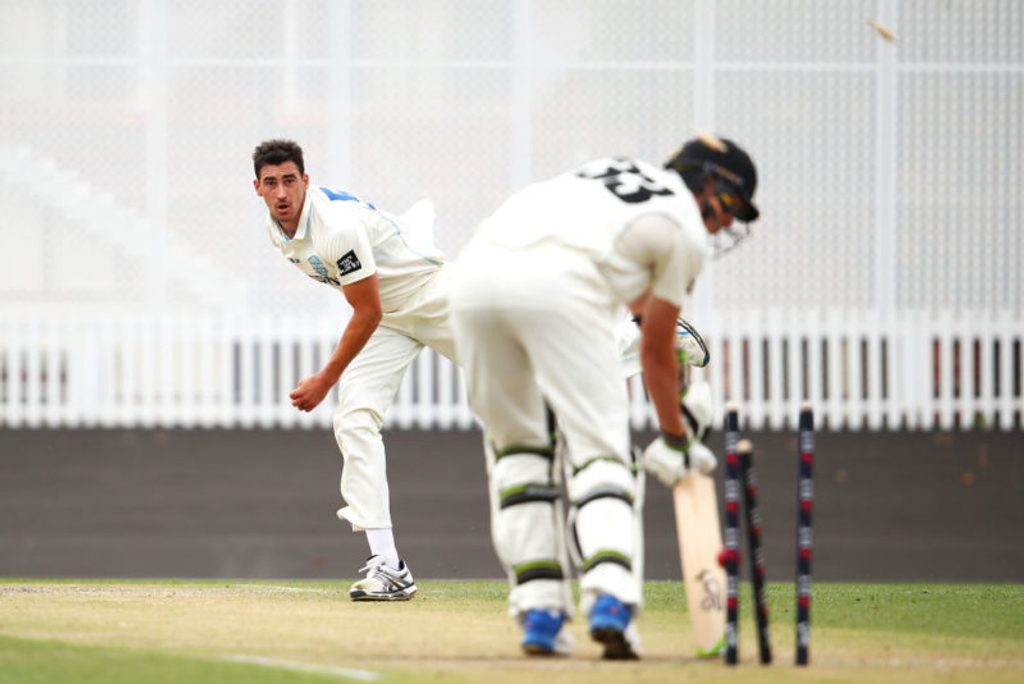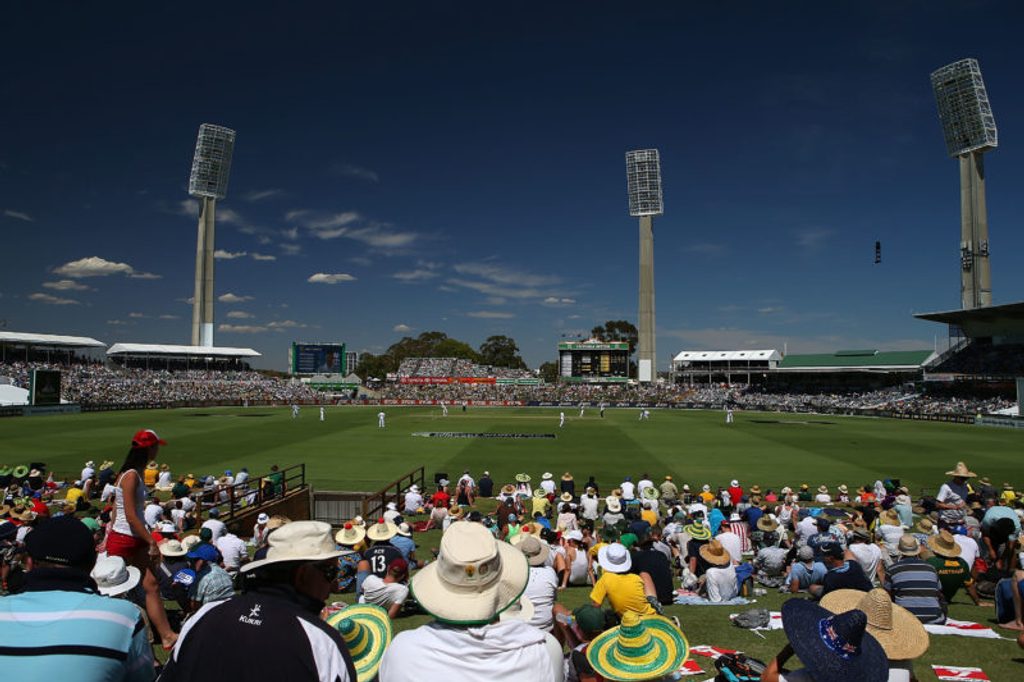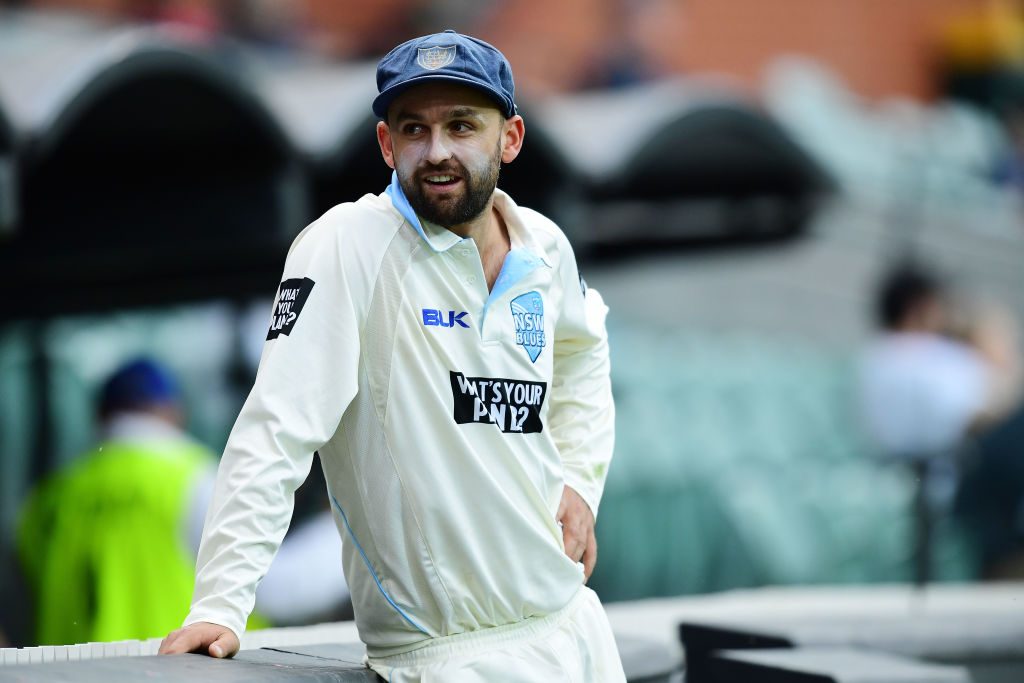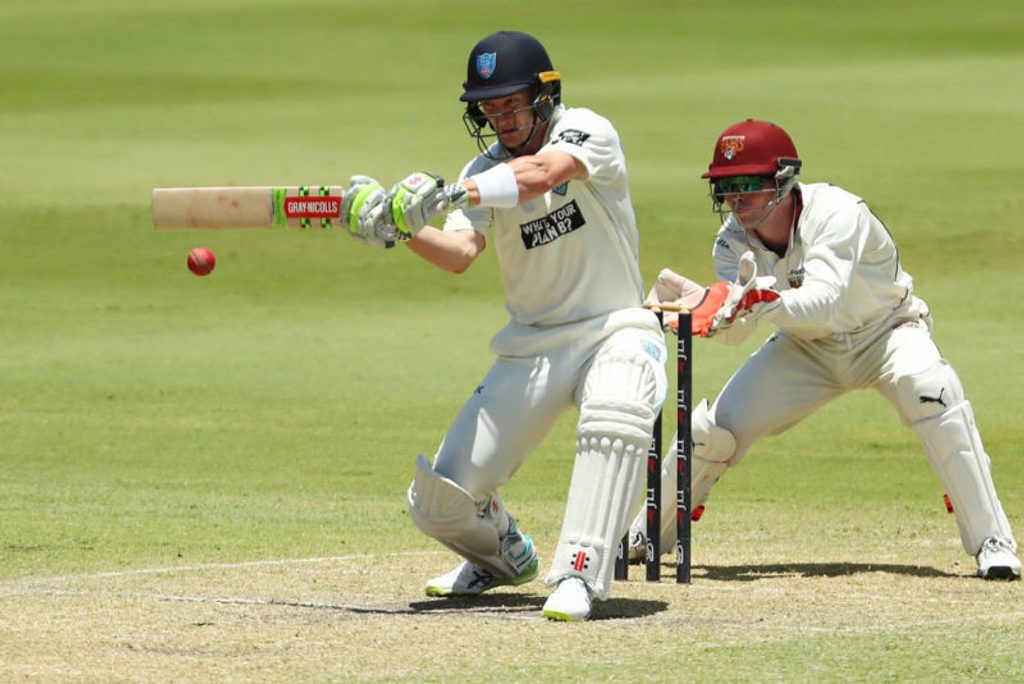
An assessment of the Australian team’s chances ahead of the Ashes series down under.
STRENGTHS
Pace like fire
A serious pace attack approaching its prime. The reason they’re runaway favourites is simple: a potent trio of quicks against a flaky top order generally spells disaster for the batting team. If Mitchell Starc, now sporting a moustache in homage to his menacing namesake and dealing in double hat-tricks for New South Wales, can go some way to matching Johnson’s feats last time out, and Josh Hazlewood and the lightning quick (if brittle) Pat Cummins can last the course, Australia will be supremely hard to stop.
 This is what Mitchell Starc does when he’s on a hat-trick
This is what Mitchell Starc does when he’s on a hat-trick
The ground beneath Warner’s feet
Exactly half of David Warner’s 66 Test matches have been played in Australia, where he thrives, making 14 of his 20 hundreds to date. In his last home Test match, at Sydney in January, he took Pakistan for a century before lunch, while against England in 2013/14, he did most of his work in the second innings, capitalising on Australian ascendancy with a brace of quick third-innings hundreds.
 For all the bombast and trash talk, Warner is a serious proposition
For all the bombast and trash talk, Warner is a serious proposition
For all the bombast, lack of guile and ill-judged talk of “hatred” and “war”, Warner remains a serious proposition on home turf. England must look to get him early, inside the first 20 overs when the Kookaburra ball offers a modicum of lateral movement. Otherwise he will cut loose.
Australian fortresses
The Gabba. The WACA. Words to strike fear into English hearts. Post-war, England have won just one Test from either venue against a full-strength Australia – Botham’s inspired 138 at Brisbane underscoring a smash-and-grab in 1986/87, which followed a win apiece at each ground for Mike Brearley’s 1978/79 tourists, when a severely depleted Australian team riven by Packer defections sunk to five Test defeats in a single summer. Three wins – and two against half a team – from 31 combined attempts speaks of English misery at these two quintessentially Australian venues.
 England have only won once at The WACA since the war
England have only won once at The WACA since the war
The mythology stems from the devil in the surface. These are two of the fastest pitches in the world – CricViz’s stats actually show Brisbane to be the second-bounciest track in world cricket (after Centurion in South Africa) with Perth coming in at No.7. Last time out, England were spooked at Brisbane to such an extent that when they arrived at Perth for the third Test, the Ashes were all but done; four-and-a-half days later, on a pitch opening up like sinkholes under the baking sun, they were. Realistically, England need to avoid defeat in at least one of these Tests to stand a chance in the series. At least Alastair Cook has fond memories of the Gabba… 513-1, anyone?
WEAKNESSES
Tameable Lyon
Graeme Swann, BT Sport pundit and three-time Ashes winner, is unconvinced by Nathan Lyon’s effectiveness without a fast-bowling destroyer unnerving batsmen at the other end, nor is he impressed by Lyon’s potency in the fourth innings, where he averages 33.47 with just one five-wicket haul against an overall career average of 31.83.
 Lyon has 269 Test wickets from 69 matches
Lyon has 269 Test wickets from 69 matches
“Without someone like Mitchell Johnson blasting people at the other end I don’t think he’ll do that well. He doesn’t win games on day five. He’s very poor at actually winning Test matches, the spinner’s major role. He’s very good at mopping up when other people are doing the damage. He’s a fine cricketer but [England’s off-spinner] Moeen Ali is better than him. He can contribute far more to his team than Nathan can for the Aussies.”
Selection headaches
Gone are the days of Australia’s Test team picking itself. On the eve of their squad announcement on Friday, at least three spots had yet to be nailed down: an opening batsman to partner Warner; a No.6 worthy of the name; and a wicketkeeper trusted by those around him.
Back in January, in the final Test of the Australian summer against Pakistan at Sydney, Matt Renshaw offered 184 reasons to be Australia’s foil at the top for years to come, but a slump in form in Sheffield Shield cricket put his place at risk, not least from the uncapped Western Australian Cameron Bancroft, who plundered an unbeaten double century this week against South Australia to further push his case. Reports suggest that Bancroft, who averaged 33 for Gloucestershire last season in Division Two, has got the nod.
The No.6 spot, meanwhile, could be filled by one of Glenn Maxwell (the current incumbent and perhaps the most likely), Marcus Stoinis, Daniel Hughes, Shaun Marsh, Hilton Cartwright (who they like, but who’s coming off a pair against NSW) or Mitchell Marsh.
 Pete Nevill, with a Test average of 22 from 17 matches, is an option to take the gloves
Pete Nevill, with a Test average of 22 from 17 matches, is an option to take the gloves
And then there’s the keeping situation. Matthew Wade, Pete Nevill, Alex Carey and Tim Paine have all been in the mix. The first two names are well-known to English observers, but their modest Test returns (both average in the twenties) have been exacerbated by a miserable run of low scores across the Australian season so far. Carey, meanwhile, is the purist’s choice – but what a turn-up if the country that spawned Adam Gilchrist reverted back to a specialist keeper with a highest first-class score of 79. Reports suggest that the selectors have gone for the veteran Tim Paine. A few days shy of his 33rd birthday, the Tasmanian has played just four Tests in a topsy-turvy career that he once feared was over after a horrific finger injury. When fit and in form he is a classy option, but it’s a big gamble on the back of two first-class fifties this season and a career average of just 29.
The weight of (recent) history
Implausibly, since the start of 2005 it’s been England holding the upper hand in Ashes contests, with five series wins to two. For all the talk – and there’s been plenty of it – Australia will be twitchy. They don’t lose Ashes series at home, that’s just how it is – or more accurately, that how it’s meant to be. But a reversal has happened once this decade already, and Smith, who has yet to fully convince as a leader, will be acutely aware that his team is far from settled. If England can hang in there and get to Melbourne with the series still alive – and where they might just be welcoming back their talismanic all-rounder to further stoke the fires – then anything can happen.








